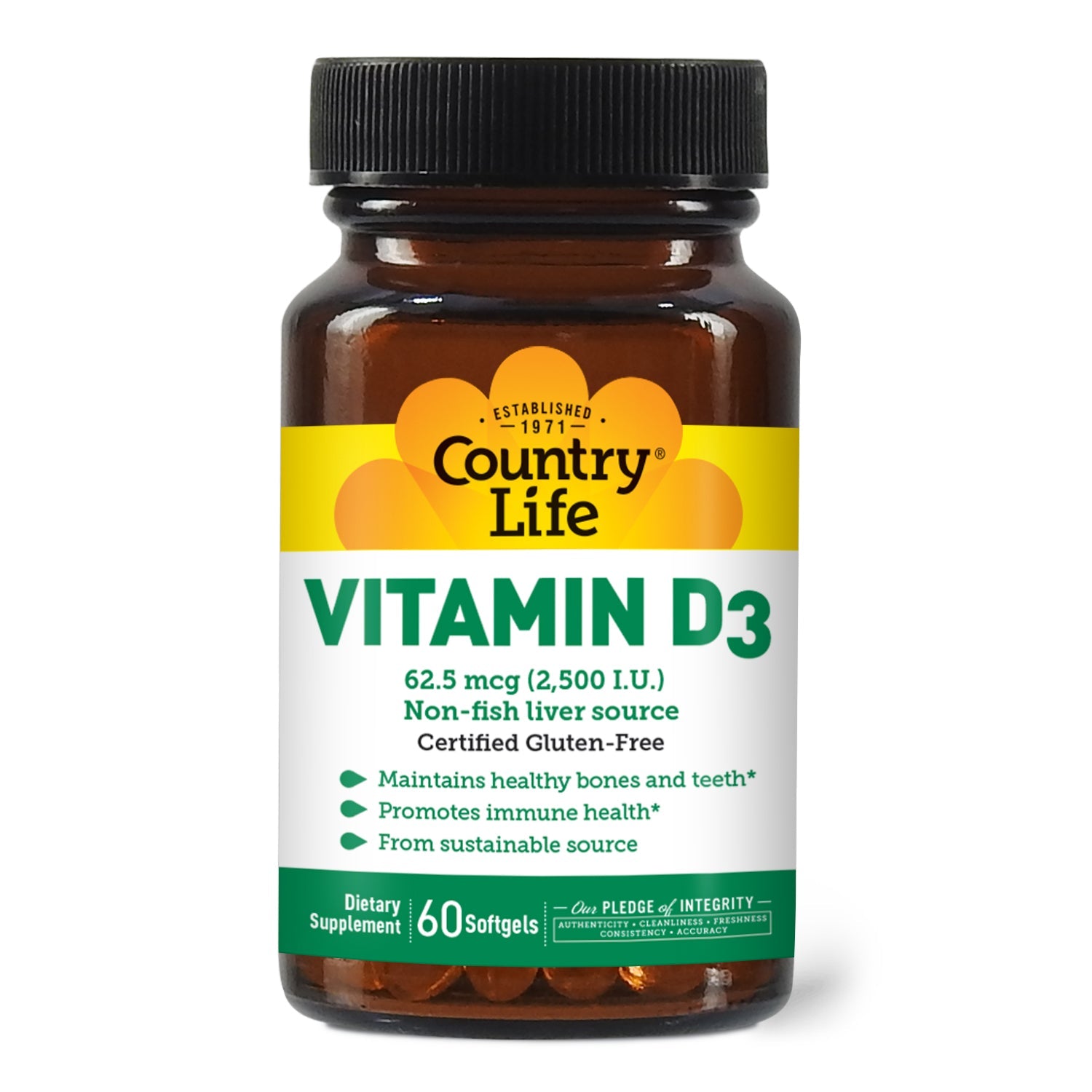If you’ve been researching vitamin D and have been considering taking it in addition to a multivitamin and other supplements, there’s a good chance you’ve come across information about two forms of this vitamin: Vitamin D and Vitamin D3. If so, you’re likely wondering if Vitamin D and D3 are the same.
Let’s dig into what the difference is between Vitamin D and Vitamin D3 below so you can gain a better understanding of what distinguishes one from the other.
What is Vitamin D?
Vitamin D is a fat-soluble vitamin found in certain foods and supplements. It can also be made by the body when your skin is exposed to the ultraviolet rays of sunlight. However, since a lot of people don’t get enough exposure to sunlight (especially during the winter months), they become deficient in Vitamin D.
Vitamin D is an umbrella term for two different forms of the vitamin: vitamins D2 and D3. These two forms are obtained from different sources and have slightly different molecular structures; however, they offer the same health benefits, some of which include:
· Promoting calcium absorption, which allows for proper bone mineralization and growth
· Supporting the immune system to help fight off viruses
· Regulating glucose (blood sugar) levels
What’s the Difference Between Vitamin D and Vitamin D3?
There are two forms of Vitamin D in the human body: Vitamin D2 and Vitamin D3. Both forms are called Vitamin D, so there’s not really a significant difference between Vitamin D and Vitamin D3.
But there are a few differences to note:
· Vitamin D3 is the form of vitamin D the human body makes when the skin is exposed to sunlight. The body can’t manufacture Vitamin D2.
· Vitamin D3 is found in animal sources of foods, like fatty fish and fish oil, organ meats, and egg yolks.
· Vitamin D2 primarily comes from plant sources, forming when certain kinds of plants are exposed to ultraviolet light from the sun.
For the purposes of taking a vitamin, however, Vitamin D and Vitamin D3 are interchangeable.
Shop Vitamin D
When choosing a Vitamin D supplement to take, whether it’s labeled Vitamin D or Vitamin D3 shouldn’t influence your decision. However, you’ll want to make sure you’re buying it from a reputable source and that it doesn’t include any artificial fillers.
Country Life’s Vitamin D3 softgels (made from a sustainable, non-fish liver source) and D3 gummies are certified gluten-free.
Sources:
https://www.verywellhealth.com/vitamin-d-vs-d3-7153133
https://www.healthline.com/health/food-nutrition/benefits-vitamin-d












Share:
What is the Difference Between Vitamins and Supplements?
What is the Difference Between Vitamins and Supplements?